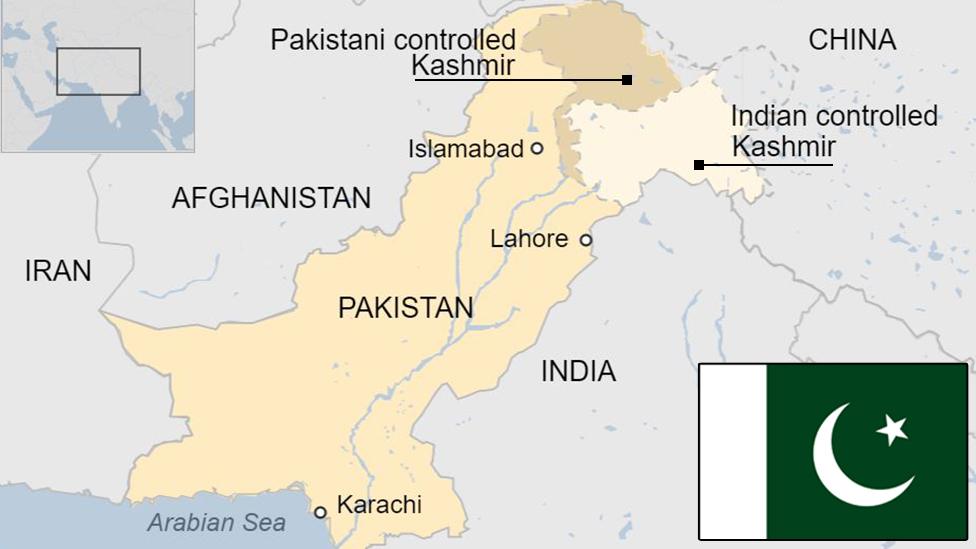Lahore attack: Pakistan PM Sharif demands swift action on terror
- Published
The BBC's Shaimaa Khalil reports on distressing scenes at the funeral of 16-year-old boy, Sharoon
Pakistan's PM has urged better co-ordination between security agencies against terror, a day after a suicide bomb killed more than 70 in Lahore.
At a meeting of security officials, Nawaz Sharif said the nation's resolve to deal with militants was growing.
A number of arrests were made and weapons seized in five raids by security forces, the army said.
Taliban splinter group Jamaat-ul-Ahrar said it carried out the attack against Christians celebrating Easter.
At least 300 people were injured, with officials saying they expected the death toll to rise.
The area was more crowded than usual, as members of Lahore's minority Christian community had gathered to celebrate Easter at a funfair in the park.
However, most of those who died in the attack were Muslims.
At least one funeral, of 11-year-old Christian boy Sahil Pervez, was held on Monday.

New pressure to act: analysis by Shahzeb Jillani, BBC News, Lahore

Jamaat-ul-Ahrar said the target of its Easter Sunday attack was the Christian community but it appeared to be an indiscriminate act of mass murder. Christians were among the victims but many of the casualties were Muslims. In the end, those killed and wounded were simply Pakistani citizens spending a day out in the park with their children.
The attack is the biggest in Pakistan so far this year and one of the most devastating Lahore has seen. It comes after a period of significant gains by the Pakistani army in crushing Taliban militants in the tribal north-west and other parts of the country. But now there is renewed pressure on Mr Sharif to let the army take on militants based in Punjab province.
Until recently, his party seemed less keen on the idea, perhaps because of its fear of losing more ground to the military. In the end, Mr Sharif may have little choice but to agree to stronger action by the army and its intelligence agencies.

Mr Sharif visited some of the injured in hospital. At the later security meeting, he said defeating terrorism was imperative.
"Our resolve as a nation and as a government is getting stronger and the cowardly enemy is trying for soft targets," he said.
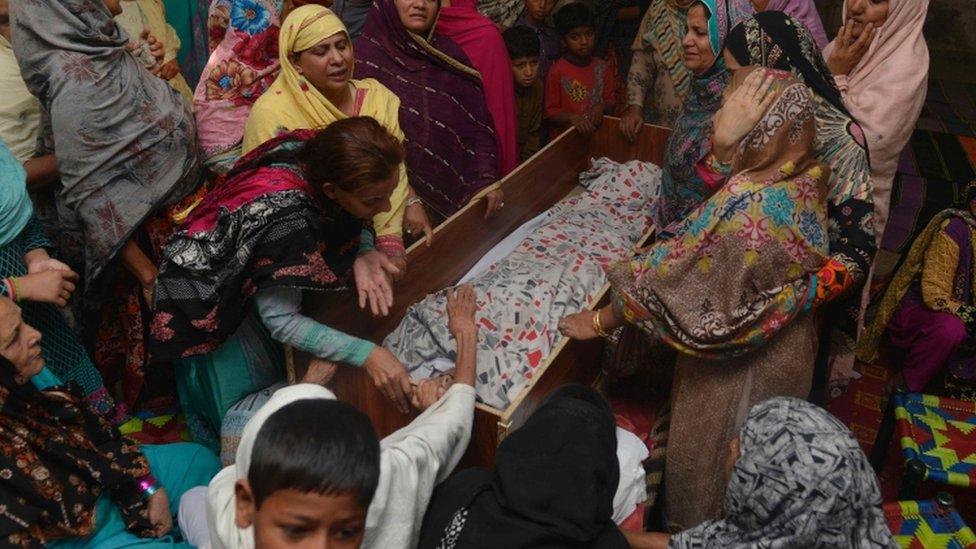
Dozens of children were among the dead
Mr Sharif added that security forces should go after the militants before they were able to strike again.
"I want more proactive co-ordination between law enforcement and intelligence agencies," he said.
"Provinces should speed up intelligence-based operations against terrorists."
Meanwhile army spokesman Gen Asim Bajwa tweeted, external that security forces had carried out raids in Lahore, Multan and Faisalabad.
A "number of suspect terrorists and facilitators" were arrested and a "huge cache of arms and ammunition" seized, he added.
Meanwhile Facebook has apologised after a programme glitch resulted in users around the world being sent a notification to let friends know they were safe after the attack, meant only for subscribers in the Lahore area.
Facebook had been criticised in the past for deploying the Safety Check application more readily if Westerners are the likely victims.
'Message to Sharif'
The government of Punjab, of which Lahore is the capital, declared a state of emergency in the city and three days of mourning. Other regions declared one day.
Schools and markets in the province were closed on Monday.
Lahore is one of Pakistan's most liberal and wealthy cities. It is Mr Sharif's political powerbase and has seen relatively few terror attacks in recent years.
A spokesman for Jamaat-ul-Ahrar, Ehsanullah Ehsan, said the group wanted to send a message to Mr Sharif that they "have entered Lahore", and threatened further attacks.
Jamaat-ul-Ahrar is a breakaway group from Tehrik-e Taliban Pakistan. It has carried out several other attacks on Pakistani civilians and security forces in recent months.
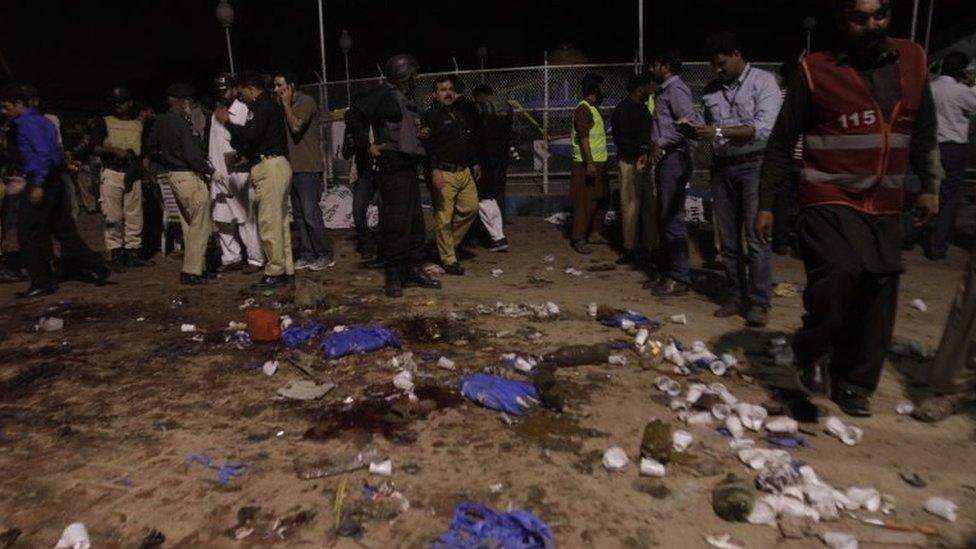
Investigators searched through debris for evidence
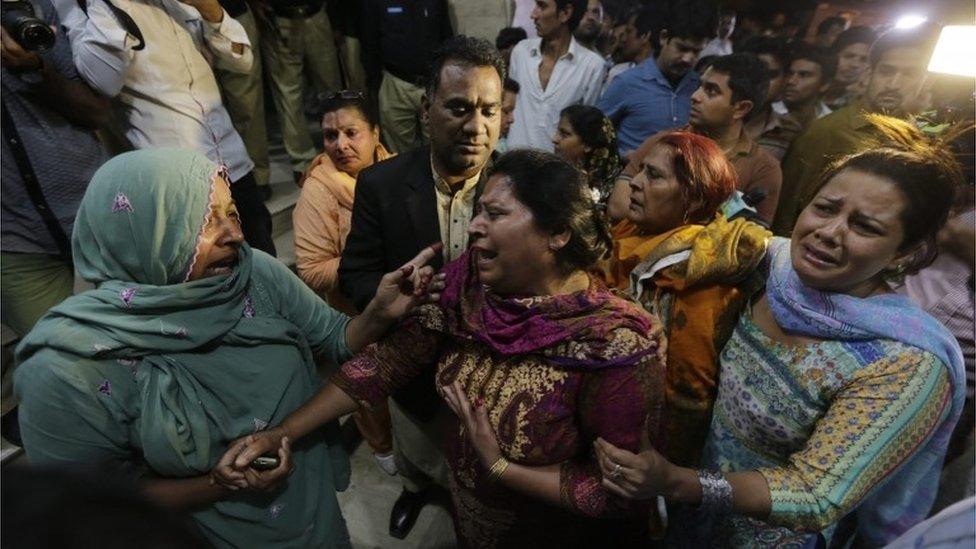
The park was more crowded than usual, as Lahore's Christians celebrated Easter Day at its funfair
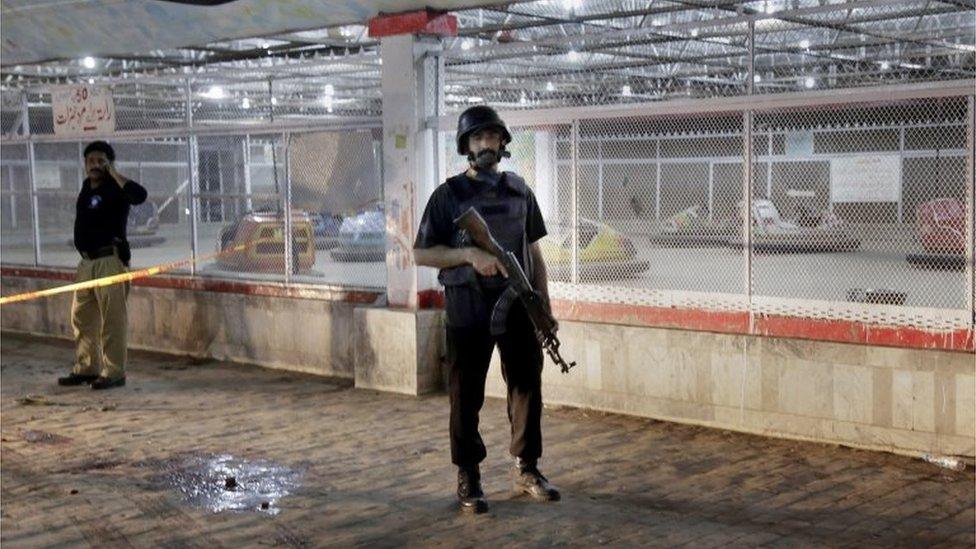
Security was tight after the attack
The explosion, believed to have been carried out by one suicide bomber, hit the main gate to the Gulshan-e-Iqbal park in the early evening, a short distance from the children's playground.
Officials said the device had been packed with ball bearings.
There were scenes of anguish as parents searched for children amid the debris.
Pakistan has suffered regular incidents of Taliban-related violence, sectarian strife and criminal gang activity.

Pakistan's Christians
Christians and Hindus make up the largest minority groups, each representing about 1.6% of the population
Large population in Karachi but also in the Punjab heartland and the cities of Lahore and Faisalabad, and Khyber Pakhtunkhwa province particularly in Peshawar city
Majority are descendants of low-caste Hindus who converted under the British Raj
Most remain poor menial workers, though there are wealthier Christians who came from Goa and are mainly in Karachi
Attacks, including church and hospital bomb blasts and mob attacks on Christian villages, have increased in recent years; the deadliest involved two bombs at a Peshawar church in 2013 which left around 80 dead
Read more: Who are Pakistan's Christians?

Are you in the area? Let us know about your experiences. Email haveyoursay@bbc.co.uk, external with your stories.
Please include a contact number if you are willing to speak to a BBC journalist. You can also contact us in the following ways:
WhatsApp: +44 7525 900971
Send pictures/video to yourpics@bbc.co.uk, external
Tweet: @BBC_HaveYourSay, external
Send an SMS or MMS to 61124 or +44 7624 800 100
- Published20 January 2016
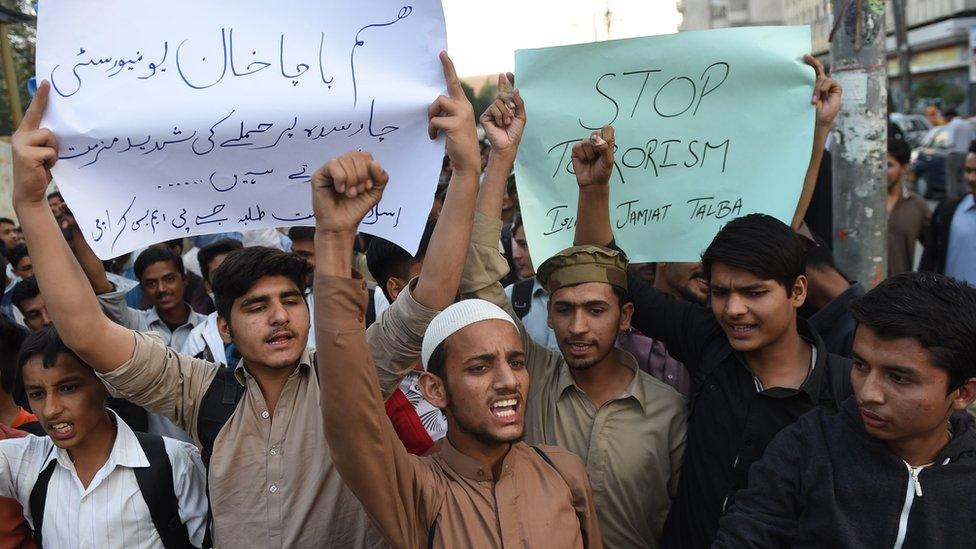
- Published28 March 2016
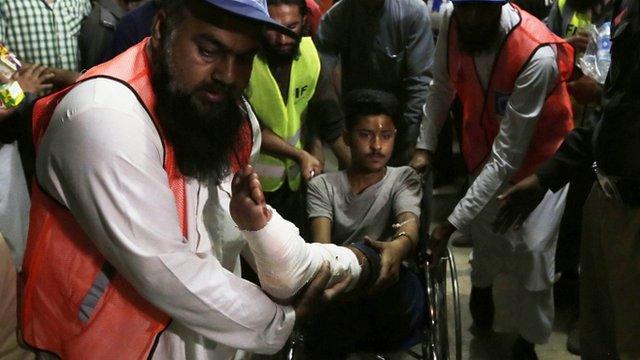
- Published30 October 2018
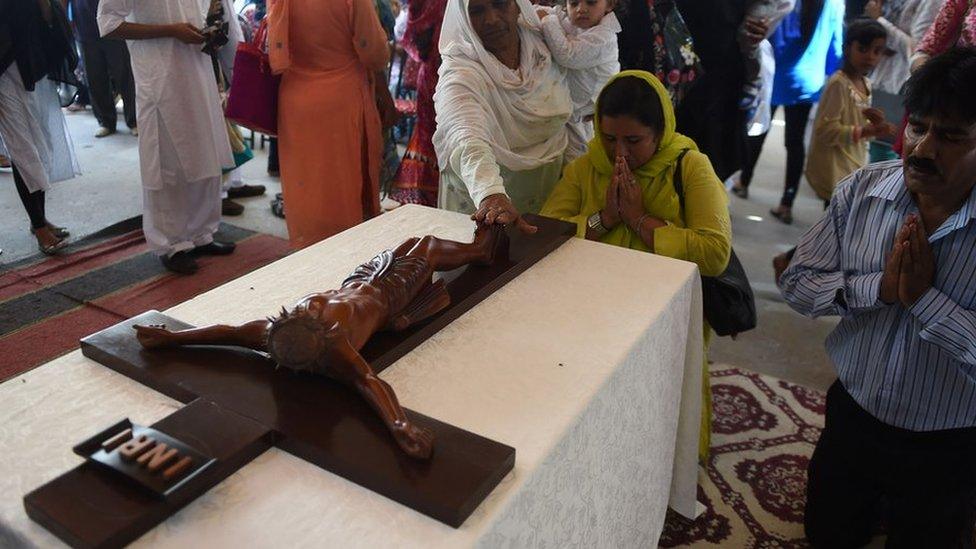
- Published28 March 2016
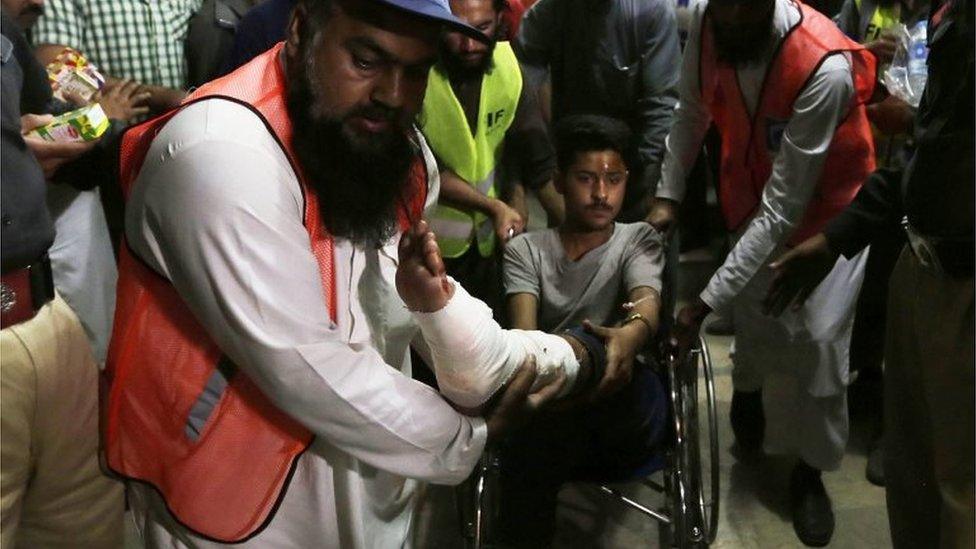
- Published15 March 2024
